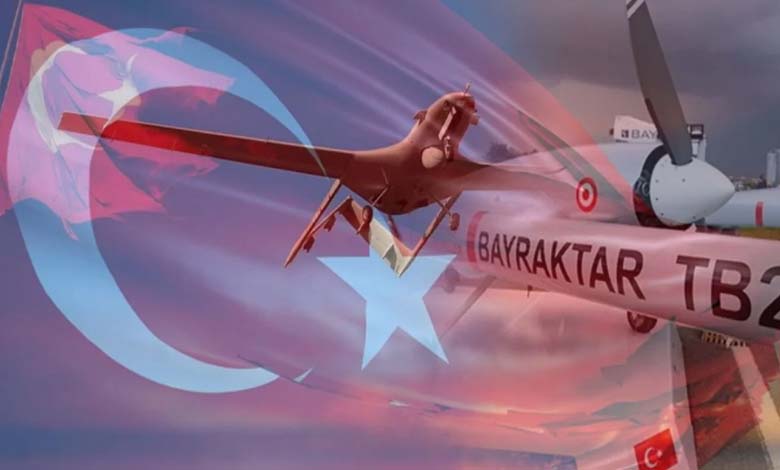Crash of Drones, Crash of Reputation: Turkish UAVs in Sudanese Skies

As Sudan experiences an unprecedented escalation between the national army and the Rapid Support Forces (RSF), Ankara has stepped directly into the military equation by openly supporting one side. Its chosen strategic asset? Drones—unmanned aerial vehicles long touted as symbols of Turkey’s growing defense prowess. Yet, the Sudanese battlefield has turned into an unexpected embarrassment, threatening the international standing of Turkish defense industries.
-
Rapid Support Forces Warn of Islamist Threat to Sudan’s Unity
-
Turkish drone strategy tested in Sudan: the failure of Bayraktar and Yiha reveals the limits of Ankara’s military influence
Following the failure of its advanced Bayraktar Akıncı drones to penetrate RSF-controlled air defenses, Turkey deployed Yiha suicide drones, designed specifically to disable air defense systems and radar installations. However, none of these drones succeeded in completing their missions. Each was swiftly shot down upon entering RSF-controlled airspace, exposing a critical weakness in the performance capabilities proudly claimed by Turkish manufacturers.
This military failure carries with it significant industrial and geopolitical ramifications. From an industrial perspective, it is a direct blow to Turkish drone-maker Baykar and its partner NASTP, both of which marketed these drones as cutting-edge technology in the field of intelligent kamikaze drones. Politically, the drones’ underperformance on an open battlefield like Sudan raises serious questions among Turkey’s prospective military partners and may undermine its defense exports amid intensifying global competition.
-
Turkish drones in Sudan: when weapons fail and intentions are exposed
-
Turkish Bayraktar Drones: Deepening the Conflict and Worsening the Wounds in Sudan
Beyond the technical setbacks, deeper political calculations emerge. Turkey’s support for the Sudanese army appears driven not only by military interests but also by broader geopolitical goals. Ankara is seeking to reassert influence in the Red Sea and the Horn of Africa via Port Sudan, a strategic coastal city under the control of an Islamist-aligned authority. Military support may thus serve not only to tip the balance on the battlefield but also to preserve political allies ideologically aligned with Ankara.
Sudan now represents a crucial test of Turkey’s foreign policy model based on projecting military power, a doctrine President Recep Tayyip Erdoğan has pursued for over a decade. While Turkish drones had earlier success in Libya and Azerbaijan, the Sudanese theater may signal the beginning of a credibility crisis. If these UAVs continue to be brought down with ease, Turkey risks losing both its strategic edge and its attractiveness as an arms exporter.
-
Turkish Presence in Sudan: Military Support Increases Civilian Suffering and Destroys Infrastructure
-
Islamists and the Army: An Alliance That Sends Sudan Back to Square One
The key question is this: will Turkey recalibrate its regional bets after this setback, or double down on its involvement in Sudan in a risky forward escape? What is certain is that the fall of Turkish drones in Sudan is not merely a tactical failure—it is a political alarm bell ringing from Khartoum to Ankara.
-
Secret Visit by al-Burhan to Turkey Raises Suspicions About the Return of the Muslim Brotherhood to Sudanese Politics
-
Al-Burhan Meets Leaders in Turkey: Are the Muslim Brotherhood Returning to the Forefront in Sudan?
-
Drones and War in Sudan: A New Strike on “Merowe” Plunges the Region into Darkness
-
Turkish Foreign Minister Angers the Muslim Brotherhood in Sudan… Details
-
Turkey’s Influence on Sudan’s Islamists Increases the Chances of Success for Its Peace Initiative
-
The Sudanese Crisis: How Does Turkey’s Role Affect Potential Solutions?
-
Al-Burhan’s Visit to Turkey: Could It Bring Islamists Back into Sudan’s Political Scene?












